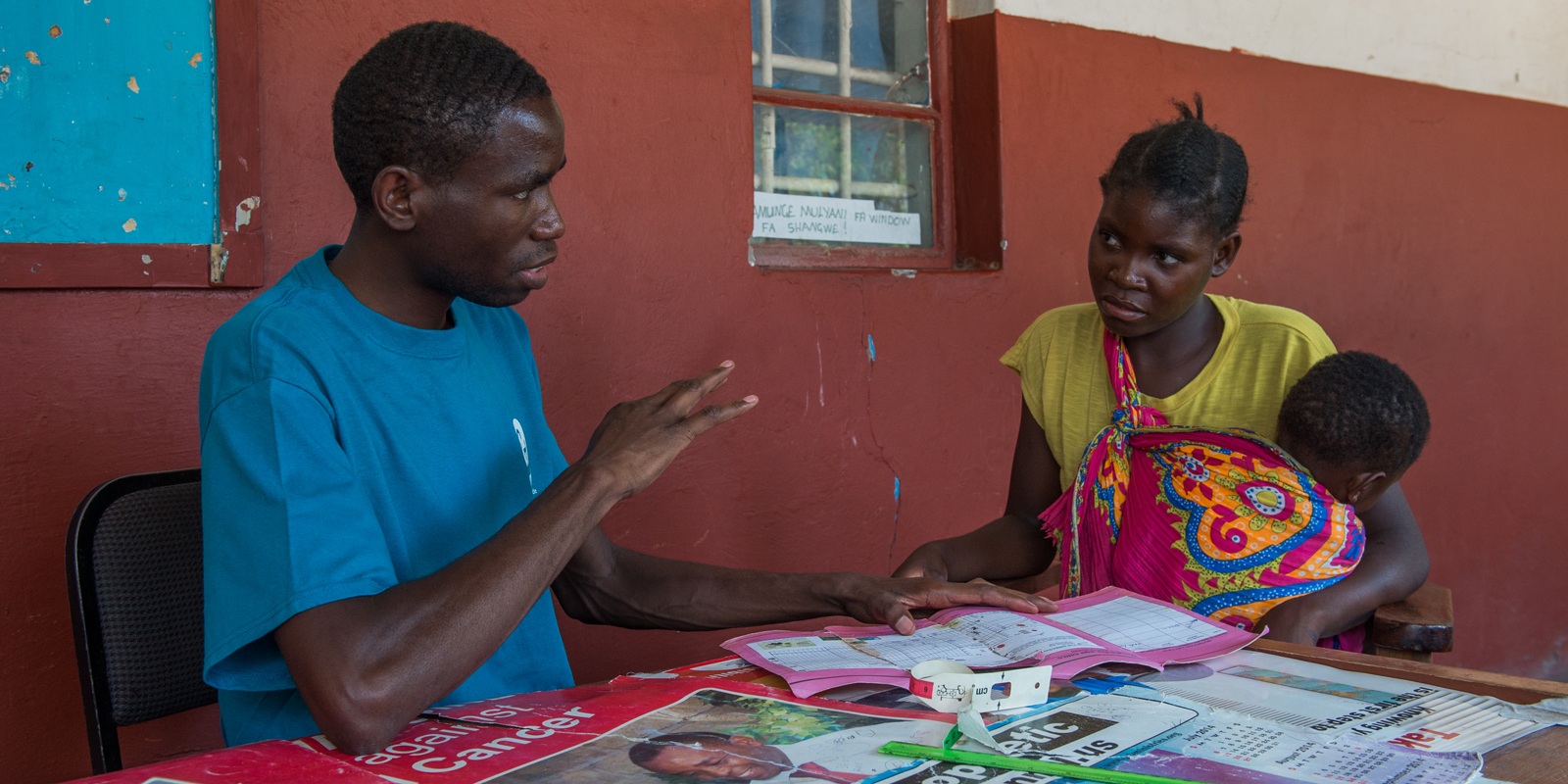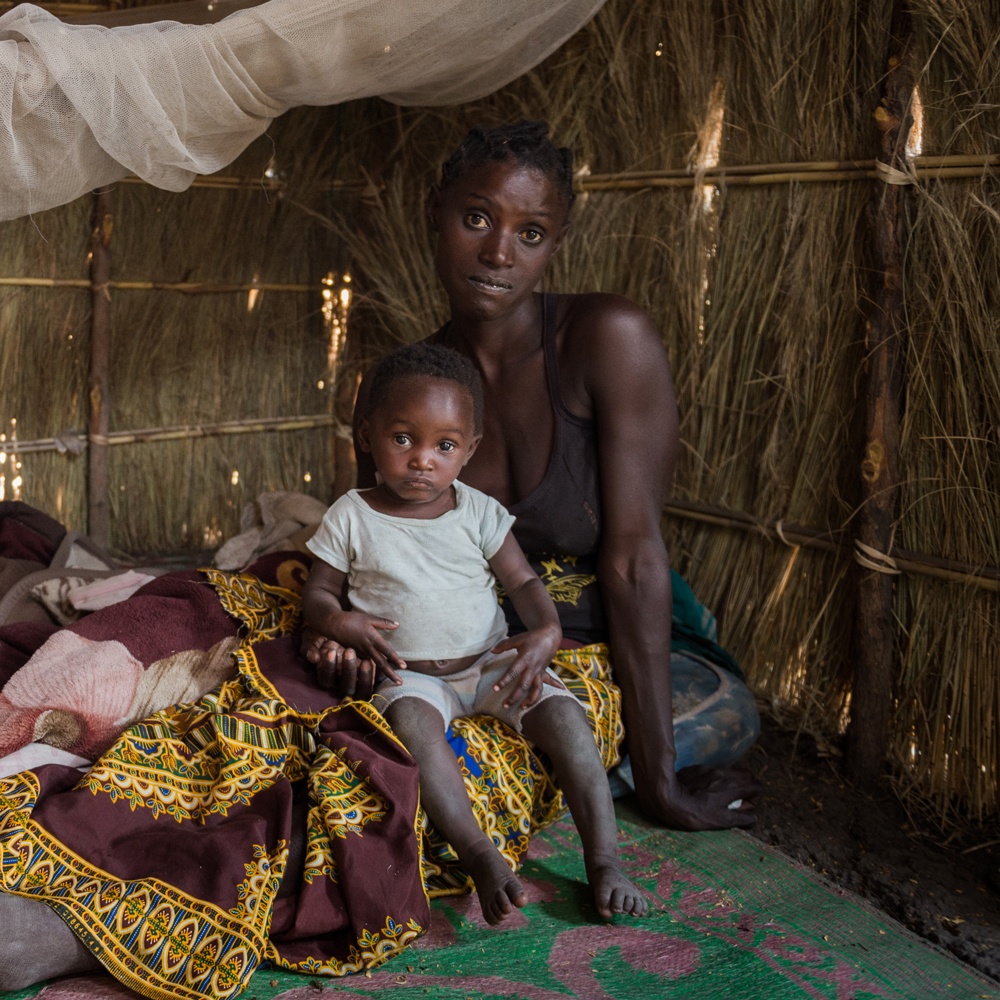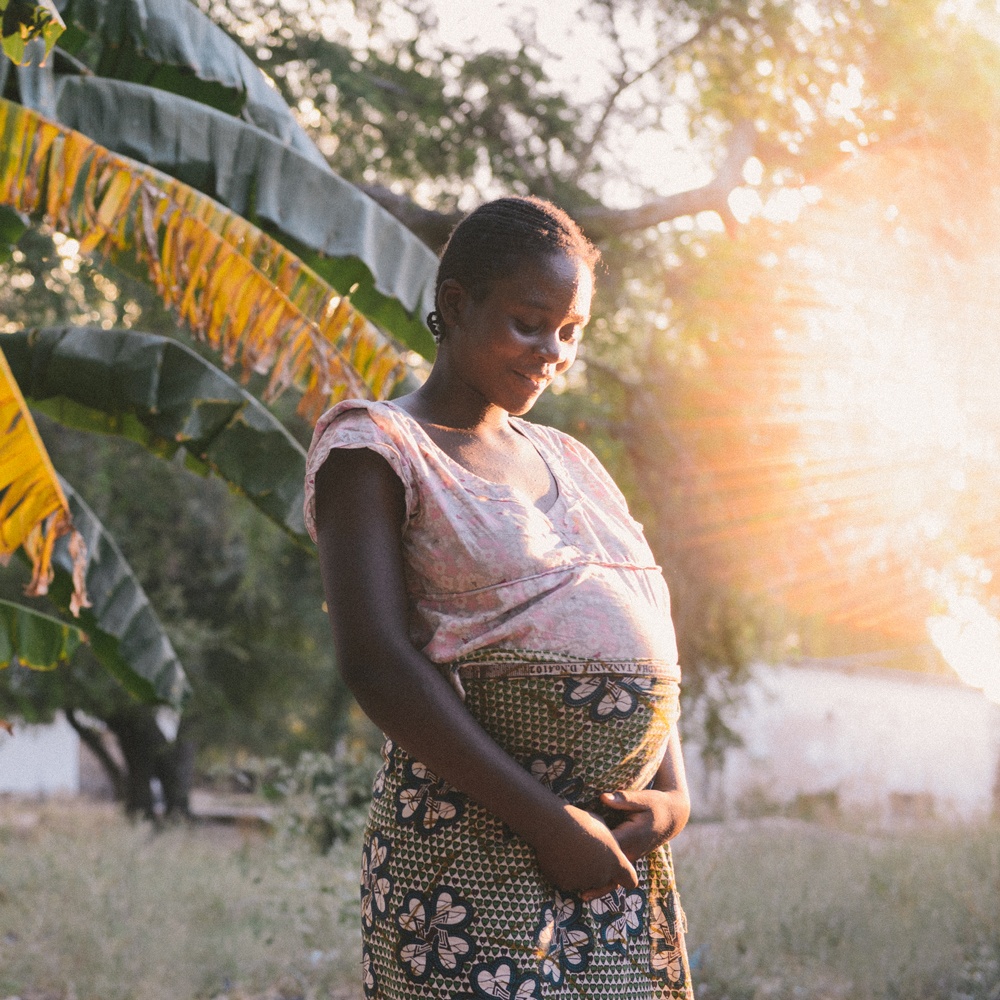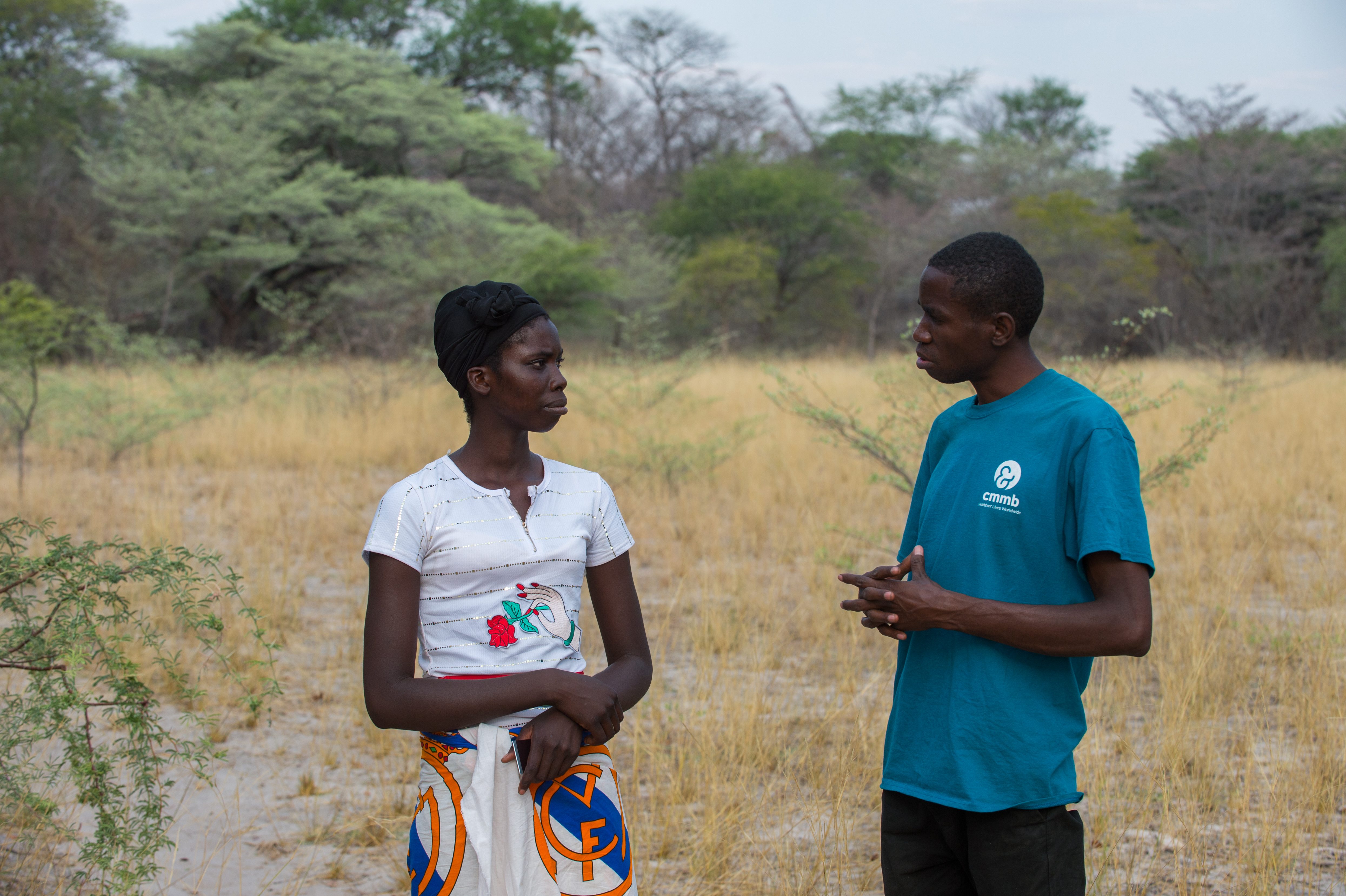“Let Me Be a Ladder”- Reflections from Mwandi
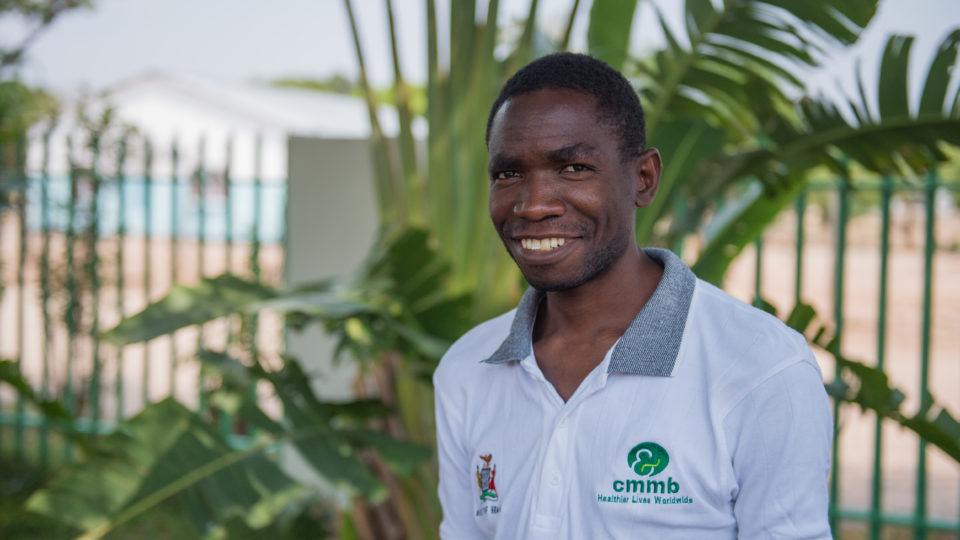
At CMMB, we are blessed to have a network of passionate professionals working on the ground in the five countries we serve. They are integral to the success of our mission, moving our programs forward and bearing witness to the changing needs of their communities.
One of these professionals is Mwauluka, our CHAMPS coordinator in Mwandi, Zambia. We recently had the opportunity to speak with Mwauluka about his journey to CMMB, the important changes he spearheads, and the motivations behind his work.
What inspired you to get involved with this kind of work?
So much really has to do with my background. I grew up and did my primary education in not developed areas—really rural areas. I’ve seen people suffering. I know what it means to have nothing. I know what it means to have something. I’ve always had this aspiration to see how we can best help those that are in the most need.
What I see taking place around me in Mwandi, is a mirror of that which I came from. When I was younger, I could not see myself beyond what I grew up with. So, to reach where I am today, I had to have strong aspirations for success. I initially struggled to see myself get to this level.
My personal experience, inspires me and motivates me. I look back on how I grew up to understand the best way to help those that are in similar situations today. It’s a strong, deep motivation within me to really focus on those that are neglected.
“It’s a strong, deep motivation within me to really focus on those that are neglected.”
What does Mwandi’s CHAMPS programming encompass?
We’re working with about 11 health facilities. But the estimated population that we are working with is somewhere around 37,000 people. Our community health workers are conducting a census and when we are done with the entries for this quarter, we will see how that number grows. Our catchment has been increasing steadily since 2019 when I joined CMMB.
What have you and your team been able to change since you arrived in 2019?
Quite a lot. When I first came on, our stakeholders—like the Ministry of Health—did not yet fully understand what CHAMPS was about. We communicated the objectives of CHAMPS, but it was still a question of how could we explain it to them so they knew what we wanted to achieve at the household level. I think these were the missing pieces and we have tried to work on this since I arrived.
The synergies we have since developed with the Ministry of Health weren’t always there. They were involved with CHAMPS but only after projects were completed. So, we changed our approach. Now we are planning together with these stakeholders. They know what we are planning for this year, even before we get to it. We are engaging with government leaders and in many cases they’ve become our peers.
This collaboration has also trickled down to the traditional leadership. You cannot function in Mwandi if you sideline traditional leadership because they have so much influence.
I was visiting the traditional leadership court recently. I was very surprised because we were trying to tell them what we’ve been doing in their village. But they just told me, “We know what you’re doing, you don’t need to tell us.” And to me, that means we don’t need to sell ourselves. People know what we are. They know what we are doing, and they are appreciating the focus that we have.
The other thing I will say is that the needs of the community change. The kind of engagement that we have fostered is such that people feel comfortable pointing out challenges that they think CHAMPS might be able to focus on. We are building a program for the people now. They are seeing themselves in the project of CHAMPS and they are able to help us dictate which way to bring our programming next.
“We are building a program for the people now.”
That’s one thing that I really appreciate so much. If you are given an opportunity to go to Mwandi, go to any area and ask about CMMB or ask about CHAMPS. Someone will be able to tell you a story about us. That’s a huge part of our achievement.
What are you and your team still working to change?
Not everyone in the community is able to appreciate the changes that are happening. Our focus is to show them just how great that change is, based on the improvement of community health behaviors year over year.
We’ve done quite a lot over the past year, and we’ve already seen so much improvement. But sanitation and maternal health, including home delivery and an alarming rate of teenage pregnancies, remain problems in some areas. But we’re meeting with the traditional leadership and other stakeholders to discuss how we can work together to reduce these challenges.
We hope and trust that through continued advocacy and the help of community members—beyond just local authorities—we’ll start seeing health behaviors change in those who have not yet accepted them.
In what other ways are you addressing challenges specific to maternal health?
The traditional leaders have what they call section leaders. That’s somebody who oversees a few households and reports on them. We are trying to engage those individuals and work together with them to address these maternal health issues.
Right now, we’re looking to get feedback on an area where we can set up a recreation point for teenagers. It’s our hope that they’ll use it as a place to meet when they aren’t in school and we can provide them with sensitization information.
Of course we are also trying to improve maternal services available at the facility level. We’re asking questions about the environment for expectant mothers at facilities and implementing measures to make sure they have a good delivery experience.
What does it take to do this kind of work?
It takes ambition and passion. This helps me do my work here. Without strong motivation, believe me, you can’t be here. There are times when we come back from the field at midnight or after midnight, only to be back in the office in the morning.
In some ways it’s a sacrifice. I wouldn’t say Mwandi is an easy area to live in, it’s a humble place. But I think there is a need for so much sacrifice.
It’s not just sacrifice for my team and I; it’s sacrifice for the community health workers too. They are doing quite a lot. For them to cover their areas, visit all their households, and report to meetings, what should be a one-hour drive by vehicle, is a 3-hour journey by bike.
What are the greatest challenges that people in this catchment face on a daily basis?
Different sites face different challenges. But I think overall poverty is the greatest challenge for the Mwandi area. At least this year we are seeing normal rains, but it’s a dry, sandy area, which limits agriculture. Unfortunately, agriculture or crop production is one of the few occupations people in Mwandi have. Some people fish and a small few are managing livestock. I think the biggest problem that people face in terms of poverty is having limited livelihood opportunities.
We know that hunger is another challenge throughout the communities you serve. What is being done to alleviate some of the hunger people are experiencing?
In Mwandi, people are hungry every season. We hope that the situation changes this year with more normal rains. But even then, agricultural production is at a low scale. You don’t have fertilizer. You are just relying on the soil. So, you find that crops don’t do so well and the yield is always poor.
We had some partner NGOs distributing Mielie Meal and the government continues to distribute it to vulnerable households. But they aren’t able to reach every one.
All of this contributes to malnutrition in children under five. At CMMB, we are working with the Ministry of Health to see how we can best improve the nutritional status of households.
At the same time, we’re trying to alleviate hunger by improving the overall poverty rate. We are giving livestock, like goats, to female-headed households with a child under five. Last year, those families started receiving five goats each. Once their goats have kids (baby goats), they will pass them on to another family in need.
With this project, we make sure we start in the homes with the most need—they are the first beneficiaries. They received the goats this year. The second most vulnerable families will receive the goats the next year and the third most the next. We will keep going until we get through the whole community—maybe in five or ten years.
Can you tell us about a person or an experience in the field that greatly impacted you?
I don’t even need to think about it. There was a 13-year-old pregnant girl, but she didn’t want to accept that she was pregnant. She didn’t want to go to the facility. She didn’t want to be even tested to see if she was positive. But the pregnancy was very visible.
I connected with her community’s local facility and we decided to follow up with her together. We had a discussion with her and it was still difficult for her to accept that she was pregnant. Eventually, she did accept it.
Now in this young girl’s household, there was only her grandmother. With her physical abilities gone, she was the sole caregiver for orphaned children and now, a pregnant teenager. When I visited, this grandmother told me, “We last had a meal, a normal meal, three days ago.” They relied on their neighbors to give them what little food they could spare.
“When I visited, this grandmother told me, ‘We last had a meal, a normal meal, three days ago.’”
That experience struck me a lot and I told them, “Okay, I am going back to Mwandi, I can afford to buy you a bag of Mielie Meal. I know that may not sustain you for long, but I feel for what you are going through.”
The challenges that this household faced, including this young girl’s pregnancy, all had to do with poverty issues. She needed money, she needed food, and someone took advantage of her.
So many households are suffering like this, and you can’t fully understand what they’re going through. It’s poverty on poverty.
What is your hope for children growing up in Mwandi?
When I have meetings in the community, I tell them that no one is of less importance. Everyone, even little babies, fills an important gap.
So with that perspective, I’ve grown up respecting every human being and valuing every soul. I try and associate myself with the people who are least considered and uplift them so that their life gets better. For some, that’s meant helping them get back to school.
My focus is to ensure that people who are vulnerable are given the chance to have a better life, just like I was. I was neglected, but God was faithful enough to bring me to where I am today.
It is my aspiration to help people the way God has helped me. Let me be a ladder for those who cross my path—that is my focus. When God brings people to cross paths with me, he opens up my eyes. I need to show them their way, just as God found me a way throughout my life.
“Let me be a ladder for those who cross my path—that is my focus.”
